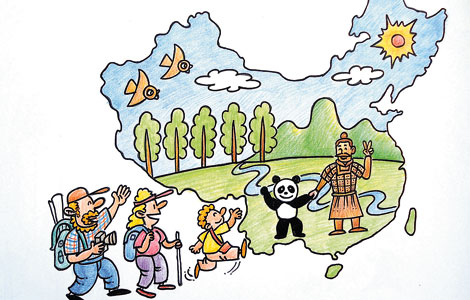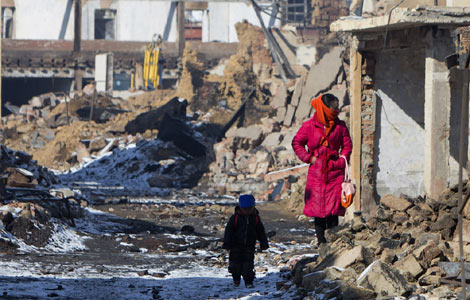China set to be focus of Davos 2014
Updated: 2014-01-21 11:23
(Xinhua)
|
||||||||
BEIJING - The World Economic Forum has succeeded in changing Davos, a small Swiss town once well-known as the home of several ski resorts, into a platform to brainstorm ideas on global issues.
What magic does the 43-year-old non-profit foundation have? Since its inception in 1971, the forum has taken every opportunity to expand its influence as it never stops learning from others' experience in society, politics and business.
The theme for this year - "The Reshaping of the World: Consequences for Society, Politics and Business" - exactly sets out the three dimensions of the world's current circumstances, and it is in this context that the focus will be on China.
In the economic dimension, six years after the onset of the global financial crisis, the world economy now comes to a turning point.
The US economy, the world's largest, is speeding up recovery while the influence of tapering its monetary stimulus continues to expand. The EU economy, once stuck in the debt crisis, is getting out of recession and starting to grow. Emerging economies, which experienced a post-crisis slowdown in the last two years, are expected to improve amid more uncertainties.
In micro-economy, fortune legends are created every day with new types of games between capitals, markets and high technology, such as wireless Internet.
In the political dimension, policy-makers are pondering how to build a mechanism for better governance and global cooperation, as national hostility, racial tension, regional conflicts as well as unilateralism and minilateralism promoted by some major countries continue to destabilize the world.
In the social dimension, social inequality calls for global reform and reshaping as the world sees a painful contrast between extravagance in developed countries and famine in poor countries, as well as a yawning development gap between the North and the South.
Alongside, new social problems brought about by urbanization, migration and aging of population, lack of educational resources emerged, while gender discrimination, income disparity and environmental deterioration still exist.
Most Viewed
Editor's Picks

|

|

|

|

|

|
Today's Top News
Memorial hall reflects on Japan's aggression
Missionary wants US to get him home
Tech park visits Bay Area
US may be losing in globalization
Students develop apps for campus life
Three dead in China food poisoning
Beijing blood donations drop
US commemorates Martin Luther King Jr.
US Weekly

|

|














